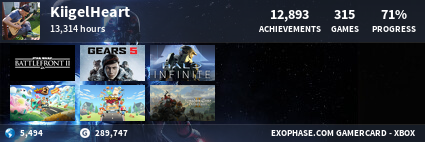On Remedies Policy and International Cooperation
Merger control is by nature a forward-looking exercise. It gives us an opportunity to intervene before markets reach tipping points. To solve problems before they occur. Sometimes, we can even steer a market to make it work better than it did before.
But that power comes with challenges. You need to predict the future impact of a transaction that is taking place today. To do that, we can't use a crystal ball. We're not very good at reading the tea leaves, either - most colleagues in the Madou Tower drink coffee, as far as I have seen.
And to make things even more complicated, for global deals many authorities are predicting the future, at the same time. Of course we cooperate, but disagreements sometimes happen. No less recently than last week, we cleared the Microsoft/Activision deal, while the CMA decided to block it.
That divergence raises important questions regarding our assessment, our remedies policy and our cooperation.
First, a few words on policy. Currently, some people think that agencies should either block or clear mergers. Nothing in between. So if you block you are a “tough” enforcer. If you clear, well, let's just say you are not perceived as tough.
That is not our policy. The European Courts have held that we cannot, as a matter of principle, dismiss remedy proposals. We have to investigate the merits of every solution offered. Of course we prefer structural remedies. And in fact, looking at the past 5 years, 80% of our conditional clearances relied on structural remedies.
But the nature of merger control is that it requires a case-specific assessment. In certain situations, we can accept solutions other than divestitures. Generally speaking, those solutions consist in granting access to a technology or an asset.
The criteria for doing so are stringent. But it is important that we have this flexibility. The reason is not just because the Court are telling us to do so. It is because framing enforcement in a binary decision (to clear or to block) is limitative. There will be cases where competition issues cannot really be solved by a divestment, and the market will not necessarily be better off if we block the merger.
To be concrete, remember that we were the only agency to intervene in Meta/Kustomer. A few agencies followed our lead in Google/FitBit and accepted the same remedies, but they were few. In these cases we adopted remedies securing competitors' free and non-discriminatory access to the relevant APIs. Access to Meta's messaging channels APIs ensured that Kustomer competitors had the same access to Whatsapp, Instagram and Messenger. Access to Fitbit's API guaranteed that competing healthcare apps would have continued access to Fitbit.
If you look at our practice over time, we are consistent. We intervene in between 5 to 6% of all cases over the past 5 to 10 years. In the last couple of years alone, we blocked two mergers and seven more were abandoned.
Which leads me to my second point, on our assessment and the divergence with the CMA in Microsoft/Activision.
Occasionally, we reach decisions that are not aligned with every other jurisdiction. So I'd like to take a few moments to set out why we believe the Microsoft/Activision merger - with appropriate remedies - is not only compatible with the Single Market, but in fact represents a positive development.
No one doubts that this was a landmark transaction in the gaming industry. Gaming is a dynamic market that impacts millions of consumers in Europe. So the deal deserved a thorough investigation. We looked at impacts on gamers today and in the future - whether they play on PC, console, or on their phones. We focused on the development of cloud streaming, which will play an increasing role in how consumers access games.
An important finding was that the overall market share for Microsoft and Activision was generally low in Europe. It's only when you look at specific segments like ‘shooter games' that you get to above 20%. And for consoles, Sony sells about 4 times more PlayStations than Microsoft sells Xboxs.
With this context, we did not think the merger raised a vertical issue. I am told Call of Duty is a very popular shooter franchise. But we found that Microsoft would probably not shoot itself in the foot by stopping sales of Call of Duty games to the much larger PlayStation player base. Our colleagues at the CMA agreed with us and ultimately reached the same conclusion.
Where we did have concerns was in cloud gaming - still a nascent market but one we expect to grow, because it offers many advantages for gamers. For one, it enables gamers to untie games from specific devices - that means more accessibility and lower cost. So cloud gaming deserved an in-depth assessment. This was a common concern because, like us, the CMA focused on this market.
We were worried that Microsoft would make Activision games exclusive to its own cloud gaming service. This would have restrained access to games and strengthened Window's position as an operating system.
Where we diverged with the CMA was on remedies. We accepted a 10-year free license to consumers to allow them to stream all Activision games for which they have a license via any cloud service. And why did we do this instead of blocking the merger? Well, to us, this solution fully addressed our concerns. And on top of that, it had significant procompetitive effects.
Consider the pre-merger situation, where Activision does not license its games to cloud services. So, in this case, the remedy opens the door for smaller cloud services in the EU to offer big games on their platforms, widening choice for gamers. The merits of this remedy was recognised across the spectrum - by developers, by cloud gaming providers, by distributors and of course also by consumer groups. And that is because it unlocked the potential of the cloud market.
This is not the only case this year where we were able to safeguard a market's potential. I can also mention our clearance of the Orange/Voo/Brutélé merger last March. In that case, the merger reduced the number of fixed telecom operators from 3-to-2 in Wallonia. To solve this, we accepted Orange's commitment to grant access to its newly acquired fixed infrastructure for ten years to Telenet. This access effectively replaced Orange, an access seeker in the region covered by the target's network, by another access seeker: it is structural in effect, targeted and not hard to monitor. With Telenet entering Wallonia with fixed telecom services, the number of players remains the same and we preserve consumer choice.
In other words, with our remedies Belgian gamers may soon be able to play Call of Duty with their Telenet internet connection throughout Belgium, and they could do so using a cloud gaming service that has not yet been launched.
Again, let me emphasize that these types of remedies are the minority of our cases, by far. But when they work, why deprive ourselves of the option? This is what useful enforcement is all about. On the other hand, when they are too complex and difficult to monitor, we pass. Major transactions have been halted because of our rigorous approach to access remedies. Remember the NVidia/ARM merger, that was abandoned last year, or Illumina/Grail, that we blocked.
Cooperation With Other Jurisdictions
In closing, I would like to say a few words about cooperation. Despite a divergent outcome, cooperation with other agencies around the globe on the Microsoft/Activision review was excellent. It involved not just the UK, but also Canada, the US, Australia and New Zealand.
Which takes me to the next point - the ever-improving cooperation we pursue with our international partners.
Better cooperation is the fruit of many things. First, of course, is the fact that we all share a desire to preserve competition. We all care about our consumers. We all understand that when we do our jobs well, markets work for people. Divergent outcomes remain exceptional, which is perhaps why they are so interesting. But, in particular with our old friends of the CMA, there is generally a large consensus when it comes to finding the best outcome – NVidia/ARM, or more recently the Sika/MBCC merger where we accepted the same remedy package, are good examples.
The second pillar of cooperation is the ongoing work of the ICN, the OECD, and indeed practitioner-led platforms like yours, in keeping the dialogue alive and open within the Community. This is what creates common understanding and helps us align our decision-making.
Conclusion
To conclude, let me try to make a forward-looking assessment of merger control itself. Again, I have no crystal ball. But it seems clear that the shifting sands of crisis and transition will set the agenda for mergers in the coming years. Since the pandemic, disruption has become the norm. There are shifts in how consumers shop, work, relax and socialise. We should expect that in the years to come, this will lead to consolidation in traditional sectors but also M&A in emerging ones.
Our mission is to accompany that transition, one merger at a time. It is to find solutions that keep the game fair for all players, and working closely together with sister agencies as we do so.
That is our Call of Duty.
Thank you.






























































